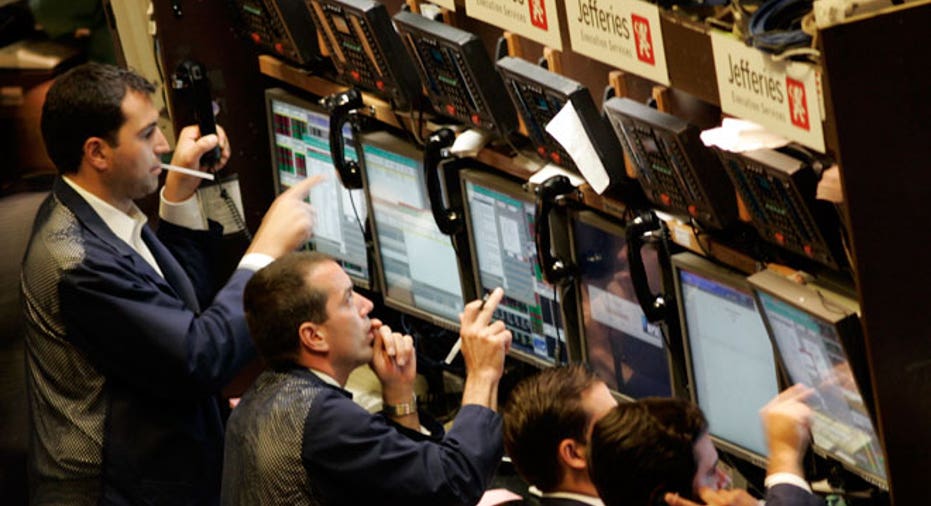How You (Yes, You) Can Get Into IPOs

Google, Facebook and Twitter all have something in common: an oversubscribed initial public offering that most retail investors were shut out of.
The Internet has leveled the playing field in many aspects of life, but for the little investor, getting in on a hot IPO is still largely a pipe dream.
“It’s really a market that small investors are pretty much shut out of,” says Michael Binger, senior portfolio manager at Gradient Investments. “It’s always been that way and it really hasn’t changed.” Consider this: Gradient Investments has $500 million under management and when they indicated interest in buying shares in the Alibaba.com IPO their request was declined.
Here’s how an IPO works: The company looking to list its shares on an exchange hires an investment firm or multiple firms to sell those shares to investors ahead of the IPO. Often, particularly with sought- after IPOs, the firms will take their allotment of shares and give them to their institutional or high-net worth clients. Other brokers will get some of shares as well, but those without a lot of money under management and/or haven’t done a lot of business with the brokerage firm aren’t likely to get access to IPO shares.
It doesn’t help that investing in IPOs can be risky. Often, the price of the IPO will rise once it starts trading publicly--but that’s not always the case. “There’s a lot of hype around IPOs,” says George Fischer, vice president for trading, margin lending and cash management at online brokerage E*Trade Financial. That pre-public excitement can vanish, along with the stock price. “People need to do their homework and make well-informed decisions.”
While it may not be as easy as calling up a broker to get in on an IPO, there are ways to do it. From using an online trading firm geared toward retail investors to purchasing an IPO ETF, here’s a look at how you can invest in IPOs.
It wasn’t too long ago that buying stocks without a broker was unheard of, but now, websites like E*TRADE and Charles Schwab make online investing easy and also provide a conduit to invest in IPOs.
According to Fischer, E*Trade acts as a seller of IPO shares and can then provide clients with access to the IPOs. “Investors can get the same access through E*Trade as an institutional investor provided E*Trade is part of the selling syndicate,” says Fischer. “It doesn’t depend on the account size of the customer.”
For retail investors who don’t have an account with an online broker that acts as an underwriter, they can get in on an IPO by buying shares in a public company that has a stake in the one about to debut.
Take Alibaba.com: Yahoo and Softbank have stakes in the Chinese internet company so investing in one of those publicly-traded companies provides a conduit to Alibaba.com. Prospectuses and other filings with the Securities and Exchange Commission show what other companies have a stake in the enterprise that’s gearing up to go public.
Investing in an IPO can be tricky, and for investors who don’t have the time or confidence to invest on their own, another avenue is to put their money in an IPO electronic traded fund (ETF). Keep in mind that with IPO ETFs, investors are getting in after the company has gone public, but according to Vern Sumnicht, chief executive of iSectors, an ETF investment company, it’s a good way to diversify an investment portfolio and enjoy the potential gains of a newly-public company.
It’s also worth noting that IPO ETFs have rules governing how they invest. For instance, the Renaissance IPO ETF buys IPOs on the fifth day of trading or upon a quarterly review and holds the stock in the portfolio for two years until it’s becomes seasoned. Meanwhile, the First Trust U.S. IPO Index fund measures the performance of U.S.-based IPOs during the first 1,000 trading days and includes the top 100 performing ones in the fund.
Similar to investing in an IPO fund after the fact, investors can stay on the sidelines after the IPO starts trading and buy shares when the price declines. Success with this strategy isn’t guaranteed, but it could be away to invest in an IPO without getting swept up in the frenzy of the first trading day. Waiting “certainly eliminates the emotion,” says Fischer.



















